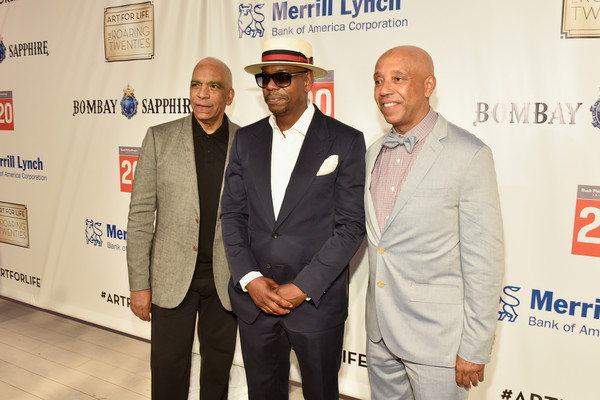
“The biggest enemy of an artist is apathy.”
Dave Chappelle said this at the Art for Life benefit in Long Island on July 19th, 2015 as he received an award from Russell Simmons’ Rush Philanthropic Arts Foundation. The statement was broad and did not refer to a specific genre of artists, but I can’t help but wonder how it applies to hip-hop artists.
As of 2016, hip-hop artists enjoy the second greatest audience reach of any genre, only behind rock musicians. The dominance of hip-hop/R&B in the realms of music streaming and social media also indicate an even greater level of reach to come. However, what makes hip-hop artists even more important is the intimate relationship they have with some of today’s greatest social challenges.
Their vernacular is the root of how millennials speak. Not just millennials who are hip-hop fans, millennials period. Their one-liners and aphorisms become Twitter bios, life philosophies, and inside jokes shared with friends. Their opinions on social issues, however misguided, are amplified in ways the world’s top scholars could only dream of.
But when someone like Future is accused of “destroying countless lives” with his codeine-laced cadences, many of us are content with saying he doesn’t need to give a fuck. By definition, an artist is not supposed to be responsible for the impact their creations have on others. They’re just supposed to create.
It’s undeniable that hip-hop artists are influential cultural figures, but do we hold them accountable for it? How would we go about enforcing artistic responsibility?
A couple of years back, I might have said this article can’t be more than a thinkpiece with a couple of suggestions. Music with mass appeal means music without controversial stances, or substance that’s too cerebral. However, the boom of the streaming industry and independent powerhouses like Chance the Rapper and Remy Ma provide a glimmer of hope. As marketing and distribution become easier to accomplish outside of labels, artists become less bound by commercial expectations in their work. Any responsibility we as consumers put on artists to be socially responsible begins to sit more firmly on artists without the scapegoat of the industry.
That being said, artists still have to speak on what’s true to them. Unfortunately, clubs, drugs, fast women and money are the only truths many of our favorite hip-hop artists have. As the fight against the music industry’s omnipotence progresses, maybe we just need our artists to progress. In the same way you as an American aren’t required to care about racism but are shitty if you don’t, artists should but don’t have to use their platforms for anything other than being the soundtrack to good times.
This wouldn’t be so troubling if artists didn’t always consider themselves leaders of the culture. If the Migos wave following the release of the aptly-titled CULTURE earlier this year was any indication, we know hip-hop artists take their roles as influencers seriously…kind of. If the issue at hand is the origin of the term ‘broccoli’ in reference to weed, or the concept of ‘dab’ as a lifestyle beyond the dance, E-40 and Migos will gladly acknowledge their gravitas. But ask Asap Rocky or Lil Wayne about Black Lives Matter, and you’ve offended someone who’s merely speaking their truth.
Me? A famous Black guy? Impact the mainstream discussion on institutional racism? Nah man, I’m just an artist.
If punitive sanctions can’t be placed on hip-hop artists, at the very least, the hypocrisy in how they treat their roles as influencers should be amplified. In simpler terms, it needs to be cool to call artist’s out on their shaky stance on being culturally important. It needs to be cool to acknowledge hip-hop culture’s impact on our daily social lives. Sure, an individual artist can’t speak out on every social issue. But is it too much to ask an artist to watch the weight of their words?
The music industry’s grasp on hip-hop isn’t as iron-clad as it was. The suggestions contained in this article have a chance at materializing. Hip-hop artists and fans, please consider the power you have to shape hip-hop culture’s role in our society.